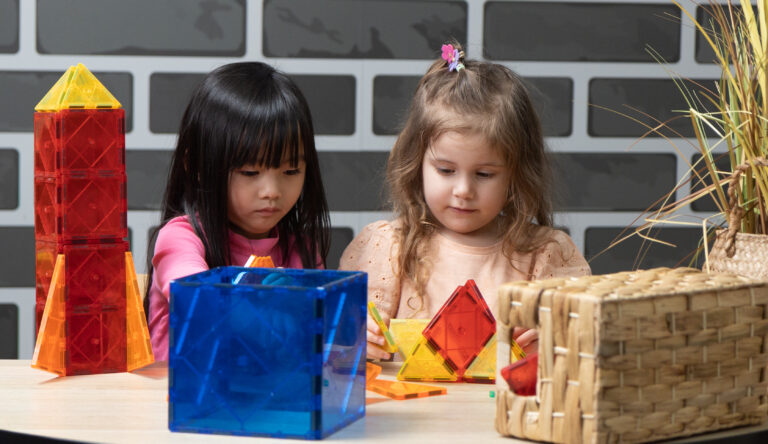
From the way toddlers mimic a bird’s song to the questions kindy children ask about stars and shadows, young children are constantly exploring the world’s hidden patterns.
This Science Week (9-17 August 2025), children at Papilio Early Learning will be doing just that - engaging with the wonder of the world around them, guided by this year’s national theme:

At first glance, it may sound complex. But in the hands of our youngest learners, it becomes something beautifully simple: a way to explore patterns, signals, rhythms, and systems, through hands-on discovery, meaningful conversations, and thoughtful play.
The Science of Everyday Moments
At Papilio, we see science not as a subject, but as a way of thinking - one that’s nurtured from the very beginning.
For a toddler, science might look like:
- Sorting leaves into colour groups
- Watching a shadow stretch across the playground
- Pouring water from one container to another and noticing the splash
For a kindy child, it could be:
- Asking what makes the wind blow
- Exploring why some objects float while others sink
- Noticing patterns in animal prints, spiderwebs, or songs
In every room, at every age, we support children to notice, wonder, question, and feel safe doing so.
The Papilio Approach: Nurturing Curious Thinkers
Through our Lifelong Learning Curriculum, science is woven into daily experiences using our Big Thinkers STEM program.
Children are supported to:
- Explore natural materials and observe changes
- Recognise and create patterns
- Engage with cause-and-effect
- Develop early prediction and problem-solving skills
- Learn the joy of asking “Why?”, and the confidence to keep asking
Our educators are intentional in their teaching, creating learning environments that invite curiosity and spark ideas. From the nursery to the preschool room, we see each child as capable, intelligent, and full of potential.
Science Week in Action at Papilio
This Science Week, children at Papilio centres will enjoy experiences designed to reflect the national theme in age-appropriate and inspiring ways.
Some of the discoveries may include:
- Sorting shells and pebbles by shape, colour or texture
- Exploring patterns in nature through leaf rubbings and shadow tracing
- Rescuing toy animals from frozen ice using warm water droppers
- Observing how light and shadow interact in different parts of the room
- Conducting “sink or float” experiments, and discussing why
These aren’t just fun activities, they’re opportunities to connect with nature, develop scientific thinking, and build confidence through play.
If your child is already enrolled, check Storypark throughout the week for glimpses into their discoveries.
Try It at Home: Simple Experiments for Little Scientists
Looking to extend the experience at home? Here are a few beautiful, screen-free ways to engage your child in scientific thinking.
1. Shadow Play (Ages 2-5)
Explore how light and shadow change throughout the day. Use a torch inside or the sun outside to trace objects, then come back later to see what’s changed.
❓ Ask: What do you notice? Why do you think it moved?
2. Nature’s Colour Palette (All Ages)
Take a walk and collect natural treasures - leaves, petals, stones. Create a “pattern trail” or rainbow collage using only colours from nature.

3. Sound Signals (Ages 1-5)
Gather a few sound-making items (keys, rice in a jar, a toy bell). Hide them behind a cloth and play one sound at a time. Ask: What do you think it is?

Why It Matters
Science Week gives us the perfect moment to pause and celebrate something powerful: the way young children make sense of their world.
Whether it’s a question asked at the breakfast table or an observation made while digging in the sandpit, these moments matter. They build the foundation for confidence, creativity, and lifelong learning.
At Papilio, we nurture thinkers, wonderers and problem-solvers.
Want to Learn More?
Our Lifelong Learning Curriculum is designed to help children aged 05 explore the world with confidence and joy.

Together, let’s nurture a lifelong love of learning, one question at a time.